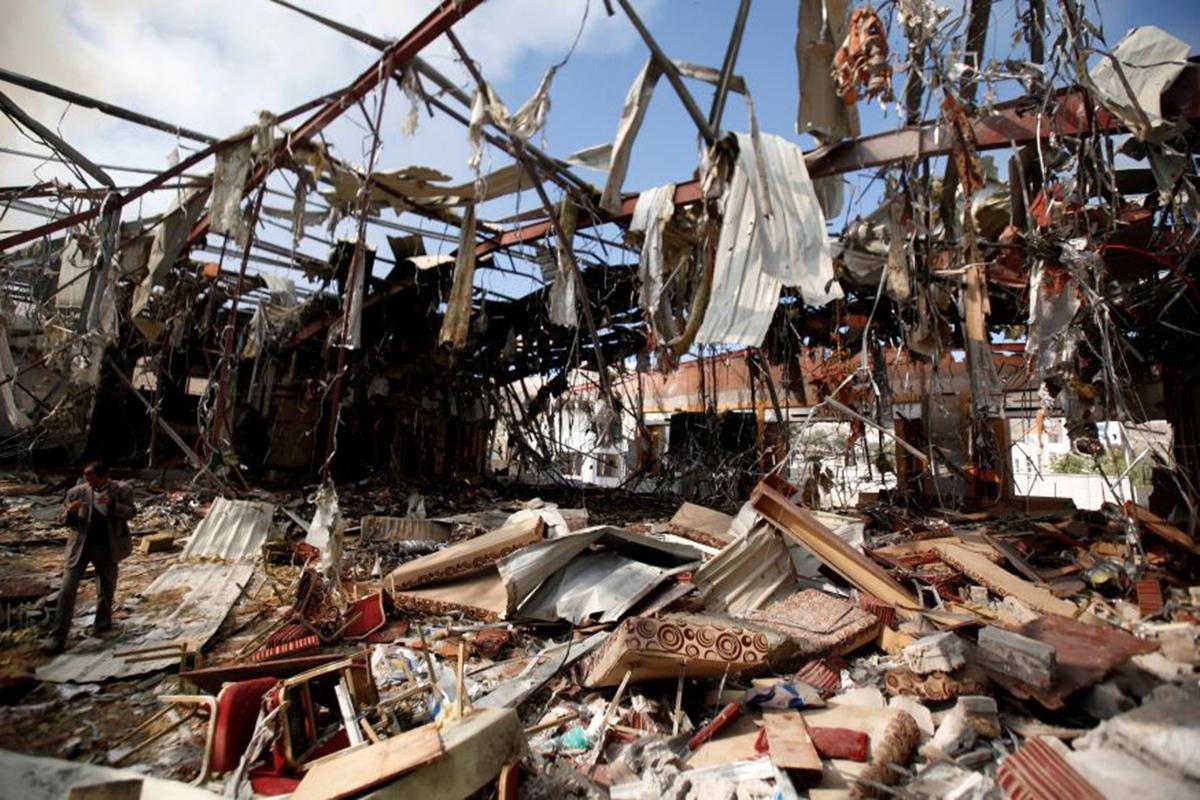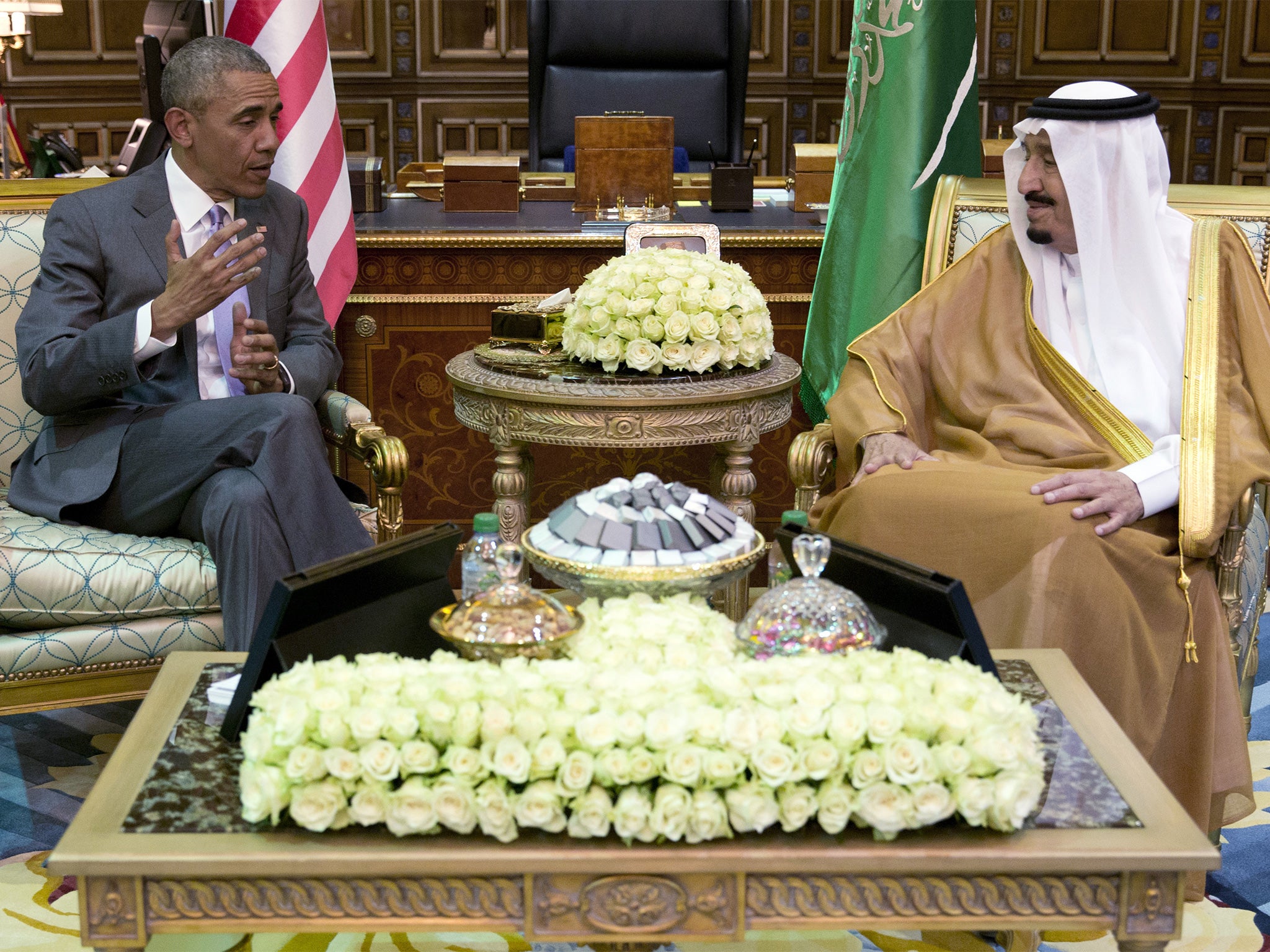Saudi Arabia to ease Yemen blockade after funeral strike as rights group condemns air strikes as ‘war crimes’
King Salman has offered evacuation for medical treatment for civilians wounded in last week’s funeral bombing as international pressure mounts on Saudi Arabia for its involvement in the Yemeni civil war

Your support helps us to tell the story
From reproductive rights to climate change to Big Tech, The Independent is on the ground when the story is developing. Whether it's investigating the financials of Elon Musk's pro-Trump PAC or producing our latest documentary, 'The A Word', which shines a light on the American women fighting for reproductive rights, we know how important it is to parse out the facts from the messaging.
At such a critical moment in US history, we need reporters on the ground. Your donation allows us to keep sending journalists to speak to both sides of the story.
The Independent is trusted by Americans across the entire political spectrum. And unlike many other quality news outlets, we choose not to lock Americans out of our reporting and analysis with paywalls. We believe quality journalism should be available to everyone, paid for by those who can afford it.
Your support makes all the difference.Saudi Arabia’s King Salman has ordered an easing of the Kingdom’s air blockade on Yemen following a deadly airstrike last week, instructing authorities to coordinate on medical evacuation for those wounded.
At least 140 people died in the shelling of a funeral hall in the Yemeni capital of Sanaa on Saturday in one of the bloodiest incidents of the 18-month-old civil war, which was condemned in a new report from Human Rights Watch (HRW) on Thursday as an “atrocity.”
Shiite Houthi rebels overthrew Yemen’s internationally recognised government last year, and Saudi-led Arab coalition strikes against them were launched in March 2016. Widespread international criticism led the Kingdom to announce an investigation into how the funeral was hit, but Saudi authorities have not admitted any culpability for the attack.
An independent international investigation is needed into the apparent war crime, HRW’s Middle East director Sarah Leah Whitson said.
The UN and a rebel news agency reported that 525 people were wounded, 300 of them critically, at the gathering for the funeral of the father of a rebel leader.
King Salman has told aid agencies and the Saudi-backed exiled Yemeni government to coordinate to “facilitate the evacuation of those wounded… and needing treatment abroad,” by lifting the air blockade on the country where necessary, the Saudi Press Agency reported on Wednesday.

Iran - a key backer of the Houthi rebels - has previously offered medical treatment for those that need it in Tehran.
The Saudi-led coalition has enforced air and sea blockades on rebel-held parts of Yemen since March. Only UN-supervised flights and aid shipments have been allowed into the country, mostly through the Red Sea port of Hodeida.
The deliveries have not been enough: fighting has displaced more than three million people from their homes and left the country on the brink of famine. The UN says more than 10,000 people have died since hostilities broke out, the majority in air strikes.
In the wake of the funeral hall bombing, a US official warned that American support for Saudi operations in Yemen was “not a blank cheque”.
Rights groups have called for the US to follow up by ending arms sales to Saudi Arabia. Munitions dropped on the ground are American made, Human Rights Watch said on Thursday, and have hit hospitals, schools and other civilian infrastructure.
A Reuters investigation revealed this week that the Obama administration did not come to a conclusion on whether the US could be defined as a ‘co-belligerent’ in the war for supplying the Saudi military with billions in weaponry. The report also said that worries were aired over the sophistication of Saudi targeting systems and the possibility of unnecessary civilian casualties.
Elsewhere on Thursday, a US warship launched two cruise missiles which destroyed three coastal radar sites in Houthi territory as a “limited self defense” attack in retaliation for incidents earlier this week in which rebels fired rockets at US Navy ships.
The action marks the US’ first military intervention in the 18-month-long conflict.
Subscribe to Independent Premium to bookmark this article
Want to bookmark your favourite articles and stories to read or reference later? Start your Independent Premium subscription today.
Join our commenting forum
Join thought-provoking conversations, follow other Independent readers and see their replies
Comments